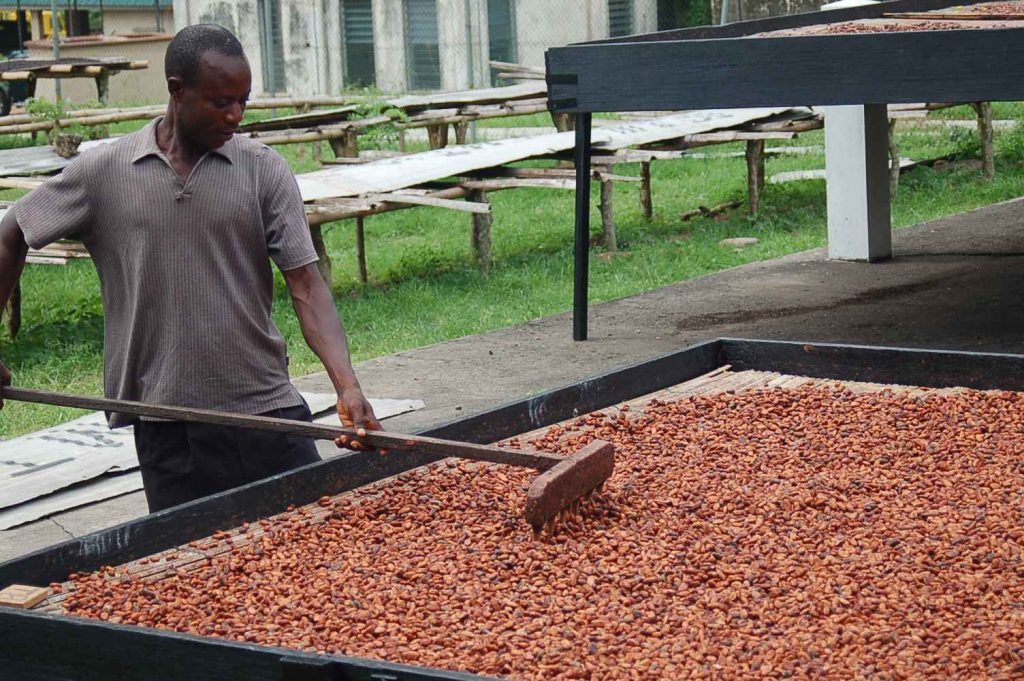The world’s two largest cocoa exporters –Ghana and Côte d’Ivoire– are working together to try to improve the terms of trade for their cocoa and thus increase the income of their cocoa farmers.
In 2020, these countries jointly introduced a premium of $400 per tonne (the so-called subsistence rent charge), which is added to the (final) market price of cocoa, according to a report by the World Trade Organization (WTO).
Ghana is the world’s second largest producer of cocoa, after Côte d’Ivoire.
The state-owned Ghana Cocoa Board (COCOBOD) has a monopoly on exports of cocoa beans, the main agricultural export product; its activities have not yet been notified to the WTO under GATT Article XVII. No legal tax is applied to cocoa bean exports.
Cocoa is by far the most important crop in Ghana in terms of contribution to GDP.
Production peaked at around 1 million tonnes in 2010/2011 and has since stabilized at around 800,000-900,000 tonnes.
Production and exports of cocoa beans from Ghana, 2014-2021
Ghana is the second largest producer and exporter, after Côte d’Ivoire, and in the period 2014-2019 it accounted for about 17% of world supplies.
Cocoa exporters
Ghanaian cocoa beans are highly sought after on world markets. Its reputation for quality is achieved through a combination of on-farm and downstream interventions.
The application of improved agronomic practices and spraying campaigns have been key factors in boosting cocoa production.
However, yields are low compared to international levels.
Fluctuations in cocoa production have been mainly due to irregular rainfall and in some cases plant diseases, such as the cocoa bud edema virus outbreak in 2018-2019.
Likewise, cocoa has been one of the main crops that have driven deforestation in the high forest zone and the loss of soil fertility when areas of virgin forest have been cultivated («forest income approach» for cocoa cultivation). .
The marketing and pricing of cocoa is regulated by the state-owned COCOBOD.
Since 1984, COCOBOD has been mandated to: purchase, market and export all cocoa produced in Ghana; and establish or encourage the establishment of industrial facilities for the processing of cocoa and the transformation of cocoa waste into marketable cocoa products.
![]()

